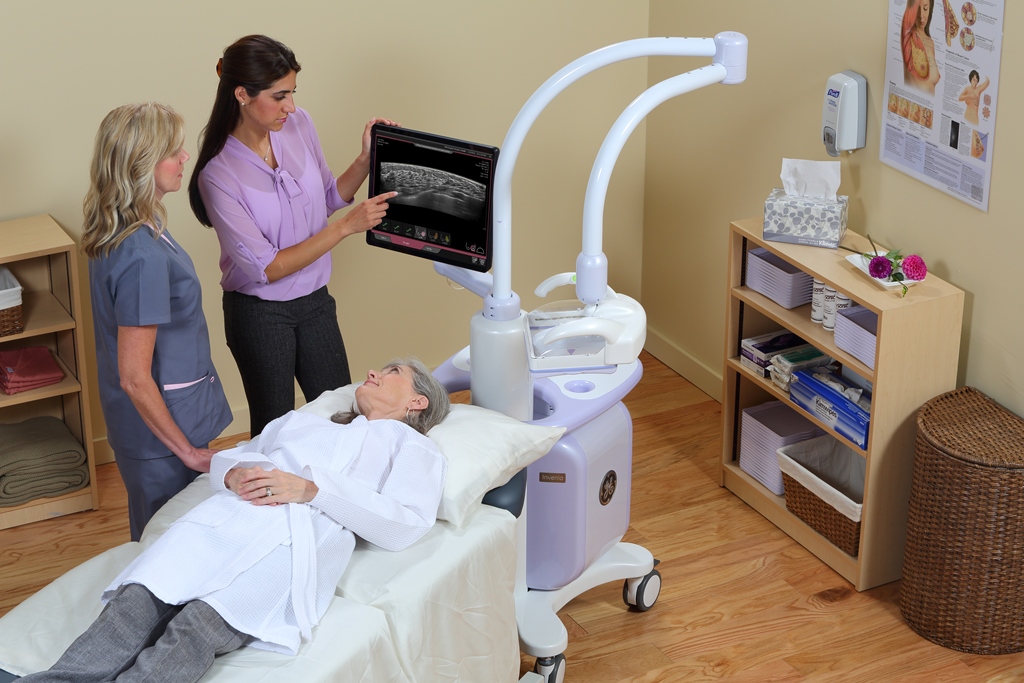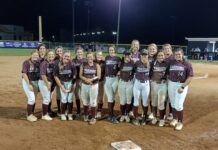CULLMAN – Mammograms are essential for all women, but 40 percent of women in the U.S. have dense breast tissue, which can hide abnormalities in mammograms.
Here are two important facts you should know:
- Women with extremely dense breasts are 4-6 times more likely to develop breast cancer than women with normal breast tissue, according to the New England Journal of Medicine.
- It is estimated that mammograms alone miss more than one-third of breast cancers hidden in women with dense breasts.
If you have ever been told your mammogram results were "inconclusive," then you may have dense breast tissue and qualify for a secondary test using Automated Breast Ultrasound Screening (ABUS) technology.
ABUS screenings do not replace mammograms. Mammograms find calcifications in the ducts that can indicate cancer.
ABUS screenings do not show calcifications, but reveal other abnormalities hidden by dense breast tissue. That's why it's important to always have a mammogram first.
“Mammography is an effective tool for the detection of breast cancer; however, it doesn’t work equally well in all women, particularly those with dense breast tissue,” added Cullman Regional Radiology Chairman Jeffrey Nicholson, MD. “Designed and built specifically for screening, research shows that ABUS technology as an adjunct to mammography has the potential to find 35.7 percent additional cancers that would not have been found with mammography alone.”
Cullman Regional is the ONLY facility in north-central Alabama offering this screening for dense breasts.
Cullman Regional Women’s Diagnostic Center was one of the first in the state to offer the Automated Breast Ultrasound system, the only technology developed and FDA-approved as a secondary screening for women with dense breast tissue without additional radiation.
How it Works
ABUS screenings are painless and comfortable. A wide field-of-view transducer is placed on your chest while you are lying down that scans the entire breast. This advanced system produces a 3-D image that can "see through" dense breasts to reveal areas that the radiologist was not able to view with enough precision on your mammogram.
An ABUS screening can be scheduled as you make your mammogram appointment at the Cullman Regional Women’s Diagnostic Center, if it is determined by the radiologist that you have dense breast tissue. ABUS screenings are only available at the Cullman Regional Women’s Diagnostic Center.
ABUS – How to get an ABUS screening
Visit your doctor and request to have your annual mammogram with ABUS screening at Cullman Regional’s Women’s Diagnostic Center. Call the Cullman Regional Women’s Diagnostic Center at 256-737-2270 to schedule an appointment and ask if you can have ABUS for your screening if you know you have dense breasts.
ABUS – FAQs
How do I know if I have dense breasts?
Breast density is determined by the radiologist who reads your mammogram.
Breasts are made up of a mixture of fibrous and glandular tissue and fatty tissue. It does not matter what size or shape your breasts are. Your breasts are considered “dense” if you have a lot of fibrous or glandular tissue and not too much fat.
There are four categories of breast density:
- Almost entirely fatty
- Scattered areas of fibroglandular density
- Heterogeneously dense
- Extremely dense
Why does it matter?
Breast cancer is more common in women with dense breasts and can be more difficult to detect with mammography. The denseness of the fibrous and glandular tissue can mask abnormalities in a mammogram.
Do I still need a mammogram?
Yes. Mammography is still essential because (1) it still finds more cancer cells than ultrasound, and (2) it picks up calcifications in the ducts, which can be an early sign of cancer; ABUS screenings do not show calcifications. An ABUS screening is a secondary screening only for women whose breast density could be masking other abnormalities.
How do I find out if I have dense breasts?
The radiologist will indicate breast density in your mammography report and the letter you will receive in the mail. If you had your last mammogram at Cullman Regional’s Women’s Diagnostic Center, you can call 256-737-2270 and ask us to check your report.
Otherwise, if you have ever been told your mammogram results were “inconclusive,” then you may have dense breast tissue. You can schedule your next mammogram at the Cullman Regional Women’s Diagnostic Center where we can perform a supplemental ABUS screening, if indicated, during your mammogram appointment.
What happens during an ABUS screening?
The Automated Breast Ultrasound System is the most advanced technology ever developed to screen women with dense breasts.
The process is simple: you will lie down on the exam table and a layer of lotion will be applied to your breasts. Then a sheer membrane covering the transducer is firmly positioned on your breast. The scanning process takes less than 60 seconds. ABUS screenings use sound waves (not radiation) to create state-of-the-art 3D ultrasound images of the breast tissue. After the screening, the radiologist can view the images along with your mammogram results to be sure every portion of the breast is thoroughly examined.
Is it painful?
You will feel some pressure as the transducer is positioned on your breast, but it is a pain-free process. To learn more about ABUS screenings for dense breasts visit online at www.cullmanregional.com/women or ask your physician.
“Many women with dense breast tissue are familiar with a call back appointment regarding additional testing following their annual mammogram,” said Sandy Creel, Lead Mammography Tech at Cullman Regional’s Women’s Diagnostic Center. “Now, our radiologists can determine if a patient’s breast density qualifies her for additional testing immediately following her mammogram. Therefore, we can do the follow-up testing with the ABUS ultrasound immediately and reduce the anxiety for patients that usually have to come back. This type of testing is really better patient care.”
How can I learn more?
Join Cullman Regional Radiology Chairman Jeffrey Nicholson, MD on Thursday, Oct. 20 for a Lunch and Learn Program on ABUS. The program is $5 for members of Healthy Life (formerly WomensFirst and SeniorChoice) and $8 for others. Make a reservation by calling 256-735-5600.
To schedule a mammogram and possible ABUS screening, call 256-737-2270.





























